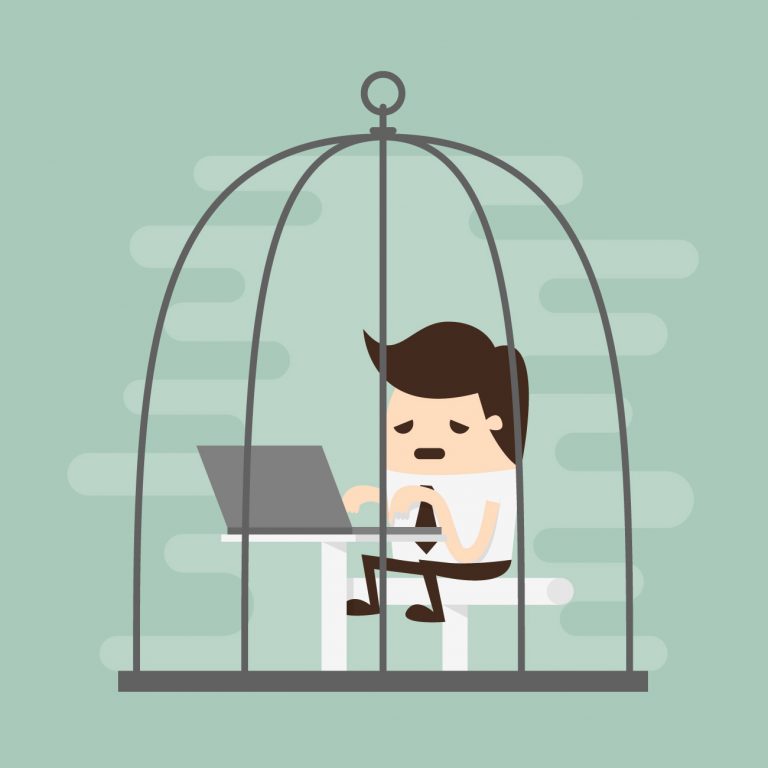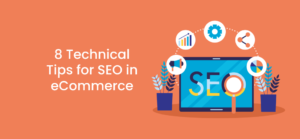Most every website owner would like to see their website rank among the top five on Goggle search results for relevant words and terms (or at least among the 10 sites displayed on the first search results page). In order to achieve this, it is necessary to invest in SEO, conduct keyword research, investigate the competition, develop a strategy that will earn your website the desired rankings, and then follow through with the required footwork in the most efficient and professional manner.
SEO is an extremely dynamic field, things that works well today may not do the trick tomorrow, but every SEO professional can list several basic things which must be tended to, things which will help drive your website’s rankings up and others which may harm them. Goggle openly declares that it is their policy to penalize websites which have taken unacceptable SEO measures or have been found lacking in some way or another.
In this post we’ve gathered for you 12 things you should beware of, things to avoid so as to prevent your website from dropping in search result rankings or even disappear from them altogether.
Duplicate Content and Unauthorized Use of Images
High quality, original content is one of SEO’s main pillars, anyone who makes use of content published by others does not only infringe on copyrights but also risks causing their website severe harm so far as Goggle rankings go.
The need to continuously add new high quality content drives many website owners to turn to professional content writers. It is vital to ensure that the content you buy is original, you can Google extracts from the text to check if they already exist on another website. Using someone else’s content is called “plagiarism” and there are tools you can use to avoid falling victim to it, such as SmallSEOTools, CopyScape, and Quetext. It is also important to avoid reposting content which already appears on another of your website’s pages, here’s a link to a tools which will help you do this http://siteliner.com/.
Check out this excellent resource guide to learn more about plagiarism.
Unauthorized use of images is also a big no-no so far as Google is concerned. It is essential that you avoid using images without consent from their copy rights owners. Sometimes permission is granted to anyone who posts a credit directly bellow an image or infographic, make sure to give such credit when due. On one of our previous posts we’ve supplied a list of commercial stocks of high quality images.
Hidden Content and Links
In the distant past it was possible to post content which Google’s bots would take into account while keeping it hidden from the eyes of website visitors (such actions are known as “black hat SEO”). One simple way to do this is by painting the text fonts the same color as the background they appear on.
Links can also be cloaked, for instance links from anchor words painted the same color as the text around them or links from a single pixel. A website on which there is cloaked content and/or hidden links will ultimately be penalized, it is therefore essential to make sure that what visitors and search engines see are one and the same.
Spam Links
Inbound links earn your website credit and contribute to it being awarded higher rankings. This is so because such links testify your website is regarded as somewhat of an authority. SEO specialists work to build inbound link banks but it is important to remember that links may differ greatly in value and that there are links which may even be harmful. Google identifies spam links and penalizes websites found contaminated by the likes of them. There is a “manual spam action” division at Google which works to detect and punish websites with “unnatural link patterns”.
You can keep track of links to and from your website using Google’s webmaster tool. There are also tools designed especially for detecting spam links, use of the best ones requires payment but there are free trial options, here’s a good example of such a tool http://cognitiveseo.com/.
Affiliate Sites With No True Value
Affiliate marketing is effective and popular. There is nothing wrong with creating high quality websites which refer visitors to other sites where they may make purchases. Google identifies such websites and will award them high rankings only if they offer content of real value.
Low Quality Content
On one of our previous posts we discussed the importance of high quality content. It is essential that the need to add new content does not drive you to make compromises so far as quality is concerned. Google hates content with no real value as well as poorly written text with grammar mistakes, long incoherent sentences etc.
Exaggerated, Unnatural Use of Keywords
It is only natural that anyone who Googles a certain word or tem will find web pages containing them. SEO is based on promoting keywords and phrases identified as ones for which high rankings are sought after. Once we’ve established a list of keywords and terms we want to promote it is essential that we incorporate them in the most effective manner into relevant pages on our website. It is vital to refrain from using these keywords and phrases unnaturally, adding them where they are not called for or unnecessarily emphasizing them over and over again.
Pages With Abundance of Outbound Links
SEO is a three sided pyramid, one is the website’s overall quality (content, code, loading speed etc.), another is visitor traffic patterns and the third is the quality of inbound and outbound links. A link’s value is determined by various parameters such as authority and trust rank of the webpage they are on, where on the page they appear (a title, via relevant anchor words, where in the text etc.), is it a case of link swapping and so on. The number of outbound links from a certain page greatly influences the value of said links. An inbound link from a page containing too many links may even harm your website.
Links to Malicious Websites
From very early on Google became known as a search engine which follows a strict moral code. This does not mean that Google acts as some type of web “police force” but there are websites which Google views as unscrupulous, porn or gambling websites for instance. Links from such websites may harm your website’s rankings.

Cloaking
Cloaking – Displaying One Version of Content to Search Engine Crawlers and Another to Visitors
We’ve already discussed the malpractice of displaying content on a website in a way which causes search engine bots to be exposed to one version while visitors see another. In the past cloaking (or hidden text) was widely used by SEO professionals, hidden text was used in order to stack a webpage with keywords without burdening visitors. Apart from using text the same color as its background it is possible to cloak text using div hidden in css, elements hidden using javascript and more. It is essential that you make sure your website does not contain hidden text because Google’s bots will ultimately unravel such attempts and your website will be penalized accordingly.
Overuse of Keywords and Phrases
How often and where to incorporate keywords and phrases is one of the main issues regarding creation of content best suited for SEO needs. In the past SEO specialists would act to have keywords make up a certain volume of the text a webpage contains (usually 3-4%). Today it is well know that Google prefers natural use of keywords and so it is advisable to refrain from forcibly incorporating them.
An important tip: it is important to use proper semantics, provide a keywords cloud (containing keywords relevant to the topic at hand) which will help Google (as well as visitors) get a feel for what things are all about.
Data Security Breaches, Phishing and Computer Viruses
Google must ensure that web users will not experience data security breaches or have no cause to beware of clicking on any link provided on search results. This is why Google goes to great lengths in order to ensure that websites that have been hacked, ones that are contaminated by computer viruses, or websites used for phishing attempts (using pretense identity in order to encourage handing over of sensitive data) do not appear on search results.
Redirects and the Canonical Tag
The canonical tag is used to define a preferred version of a webpage, it is thus possible to get Google’s bots to crawl one version and ignore another. It is important to make proper use of the canonical tag, among other things so as to avoid content being regarded as duplicated.
Redirects (such as 301, 302 and 304) are used to refer visitors landing on a certain webpage directly onto another, it is important to make proper use of redirects so that visitors (and Google’s bots) are not forwarded to pages which display an error message, here’s a tools for checking a webpage’s HTTP status code.
In Conclusion: SEO demands effort, there is plenty which can be done in order to earn better rankings for your website on Google search result, but there are also traps, things that if you don’t pay heed to will cause your website’s rankings to drop, sometimes severely.
As a thumb rule it is best to follow the straight and narrow path and build a high quality, user friendly website with plenty of valuable content. Use of duplicated content, images without consent from copyright holders (or without allocating the credit due), unnatural link patterns (spam links or links from scrupulous websites), exaggerated use of keywords and phrases, errors in code (such as redirects leading to error messages), all these and more may lead to Goggle penalizing your website, awarding it lower rankings that those it may otherwise be entitled to.




